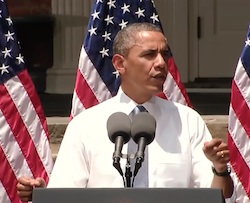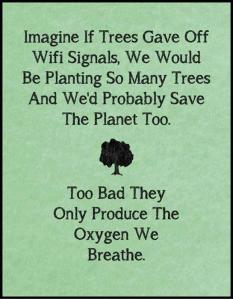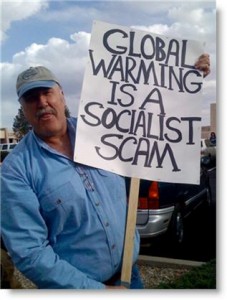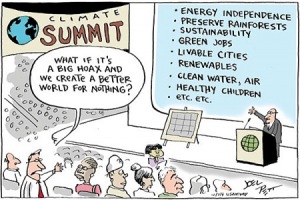“We don’t have time for a meeting of the Flat Earth Society.”

The President at Georgetown University June 25
Tuesday, President Obama delivered a speech at Georgetown University unveiling his Climate Change Plan. The message, overshadowed in the news by a couple of big Supreme Court cases, was a broad overview of his administrations ideas and commitments. But what exactly did the President propose? Does the plan have any teeth?
All in all, I feel that the speech was a good snapshot of our progress in the past few years. There was some back slapping and celebrating because the US has decreased its carbon emissions more than any nation since 2006, and because over half of the new electricity production installed last year was renewable. There were strong calls for more community led efforts, and more bipartisan cooperation as well.
But what did (or didn’t) the President commit to do?
Well, there were a few solid promises to take away:
-The EPA now has the go-ahead to create and impose carbon pollution standards, similar to limits the agency has put on mercury and arsenic in the past
-The Department of the Interior will permit building enough renewable energy on public lands to power 6 million homes by 2020
-Established a goal of installing 100 MW of renewable energy on federal housing by 2020
-Set a goal to cut carbon emissions by 3 billion metric tons by 2030
Despite showing strong support for lowering carbon emissions and increasing renewable production, it is clear that Obama’s energy plan includes plenty of support for natural gas. In fact, he included natural gas in his definition of clean energy. He also praised the beginning of construction of the first nuclear plants in 30 years in Georgia and South Carolina. The inclusion of natural gas and nuclear power in his ‘clean energy’ speech led to his most enigmatic initiative of the plan:
-$8 billion in loan guarantees for “advanced fossil energy” and energy efficiency projects
This promise is what worried me the most. These guaranteed loans could go to natural gas, “clean coal”, or fracking to produce shale gas and oil. Or it could go to carbon recapture projects, or efforts to build better turbines. In short, this is $8 billion that could hurt or help the environment. We just don’t know where this money will go.
In my opinion, these new standards and goals won’t really mean much until we see how they are going to be put into practice. The big question is how the EPA will create and implement these restrictions on carbon pollution. Obama pointed to the 1970 Clean Air Act, and how it limited certain types of airborne pollutants. Back then, when it was introduced, industries cried foul and predicted the death of the automotive industry and economic ruin, but it ended up being a very effective bill. New carbon standards are likely to follow a similar path of regulations. On the other hand, the administration might try a new strategy, such as a carbon tax (which is favored by some economists).
The real strong point of the speech was in Obama’s messages to climate change detractors and those on the other side of the aisle. He addressed those with economic concerns about his plan with examples from the past:
“See, the problem with all these tired excuses for inaction is that it suggests a fundamental lack of faith in American business and American ingenuity. These critics seem to think that when we ask our businesses to innovate and reduce pollution and lead, they can’t or they won’t do it. They’ll just kind of give up and quit. But in America, we know that’s not true. Look at our history.
When we restricted cancer-causing chemicals in plastics and leaded fuel in our cars, it didn’t end the plastics industry or the oil industry. American chemists came up with better substitutes. When we phased out CFC’s — the gases that were depleting the ozone layer — it didn’t kill off refrigerators or air-conditioners or deodorant. American workers and businesses figured out how to do it better without harming the environment as much.
The fuel standards that we put in place just a few years ago didn’t cripple automakers. The American auto industry retooled, and today, our automakers are selling the best cars in the world at a faster rate than they have in five years — with more hybrid, more plug-in, more fuel-efficient cars for everybody to choose from.
So the point is, if you look at our history, don’t bet against American industry. Don’t bet against American workers. Don’t tell folks that we have to choose between the health of our children or the health of our economy.”
Obama also pointed to some of our biggest corporations, and their carbon emission and renewable energy plans:
“Recently, more than 500 businesses, including giants like GM and Nike, issued a Climate Declaration, calling action on climate change “one of the great economic opportunities of the 21st century.””
“Walmart is working to cut its carbon pollution by 20 percent and transition completely to renewable energy. Walmart deserves a cheer for that. But think about it. Would the biggest company, the biggest retailer in America — would they really do that if it weren’t good for business, if it weren’t good for their shareholders?”
Then he addressed the fact that climate change has become a very bipartisan, divisive issue (although what issue isn’t these days), but reached across the aisle to encourage the Republican party to take part:
“I know some Republicans in Washington dismiss these jobs [in renewable energy], but those who do need to call home — because 75 percent of all wind energy in this country is generated in Republican districts. And that may explain why last year, Republican governors in Kansas and Oklahoma and Iowa — Iowa, by the way, a state that harnesses almost 25 percent of its electricity from the wind — helped us in the fight to extend tax credits for wind energy manufacturers and producers. Tens of thousands good jobs were on the line, and those jobs were worth the fight.”
“As I said before, climate change has become a partisan issue, but it hasn’t always been. It wasn’t that long ago that Republicans led the way on new and innovative policies to tackle these issues. Richard Nixon opened the EPA. George H.W. Bush declared — first U.S. President to declare — “human activities are changing the atmosphere in unexpected and unprecedented ways.” Someone who never shies away from a challenge, John McCain, introduced a market-based cap-and-trade bill to slow carbon pollution.”
As I mentioned, this speech was quickly overshadowed by the big Supreme Court decisions regarding DOMA and the Voting Rights Act, but we should start seeing the effects of this new climate change plan soon. In fact, coal stocks have tumbled since the speech, and one can expect natural gas stocks to rise. But, lets focus on the central message of reducing carbon emissions, and hope that this speech is the beginning of some real action. In the President’s words, let’s make the United States of America “a global leader — in the fight against climate change.”
Read the transcript of President Obama’s speech here

![h79580F91[1]](https://rethinkrenew.files.wordpress.com/2013/10/h79580f911.jpg?w=300&h=202)

![United-Church-of-Christ[1]](https://rethinkrenew.files.wordpress.com/2013/07/united-church-of-christ1.jpg?w=240&h=300)




